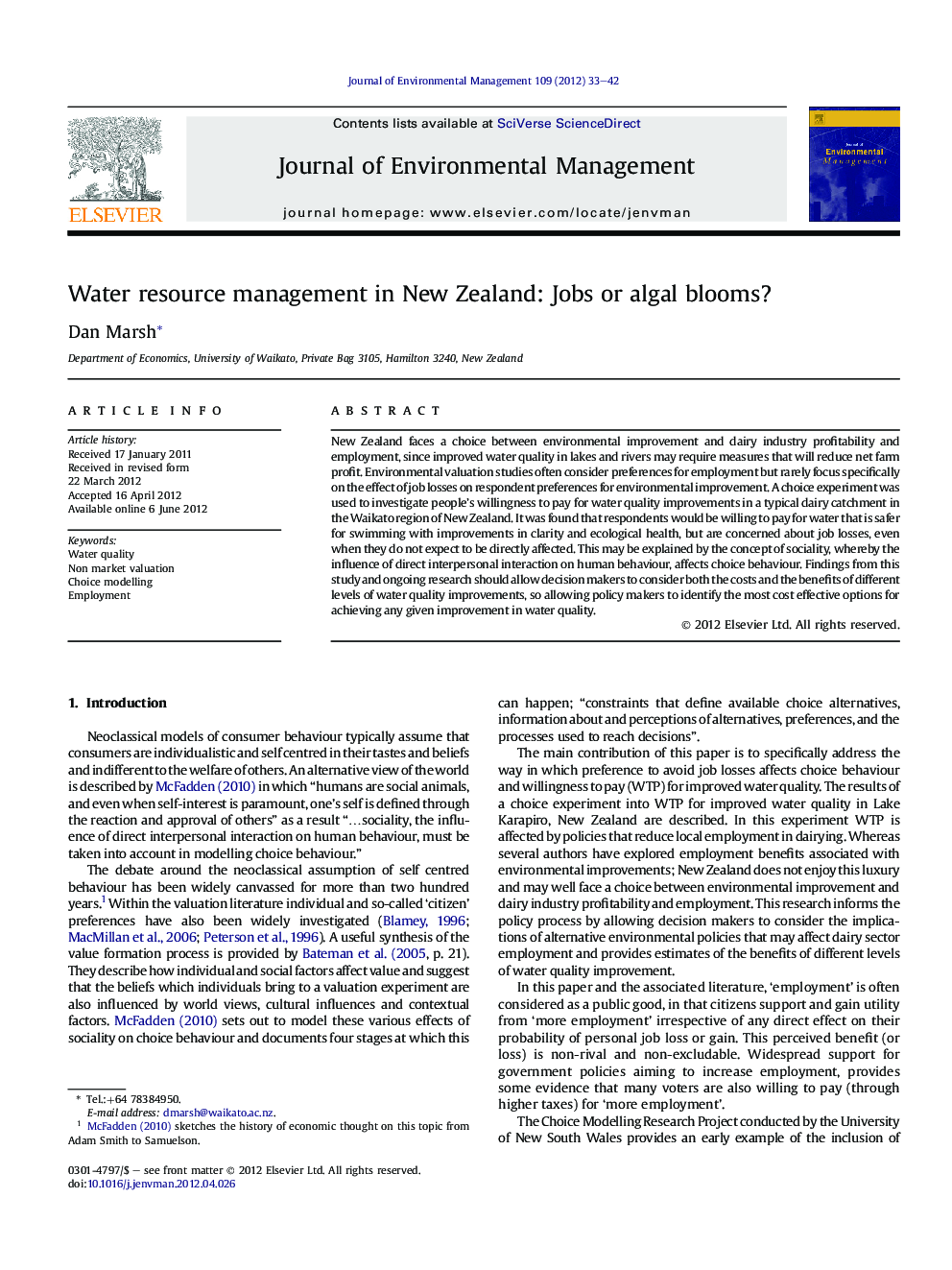| Article ID | Journal | Published Year | Pages | File Type |
|---|---|---|---|---|
| 1056480 | Journal of Environmental Management | 2012 | 10 Pages |
New Zealand faces a choice between environmental improvement and dairy industry profitability and employment, since improved water quality in lakes and rivers may require measures that will reduce net farm profit. Environmental valuation studies often consider preferences for employment but rarely focus specifically on the effect of job losses on respondent preferences for environmental improvement. A choice experiment was used to investigate people's willingness to pay for water quality improvements in a typical dairy catchment in the Waikato region of New Zealand. It was found that respondents would be willing to pay for water that is safer for swimming with improvements in clarity and ecological health, but are concerned about job losses, even when they do not expect to be directly affected. This may be explained by the concept of sociality, whereby the influence of direct interpersonal interaction on human behaviour, affects choice behaviour. Findings from this study and ongoing research should allow decision makers to consider both the costs and the benefits of different levels of water quality improvements, so allowing policy makers to identify the most cost effective options for achieving any given improvement in water quality.
► New Zealand may face a trade-off between water quality and employment. ► Respondents want water that is clear, safer for swimming and ecologically healthy. ► The benefits of better water quality are quantified using a choice experiment. ► Respondents are concerned about job losses even when not directly affected.
